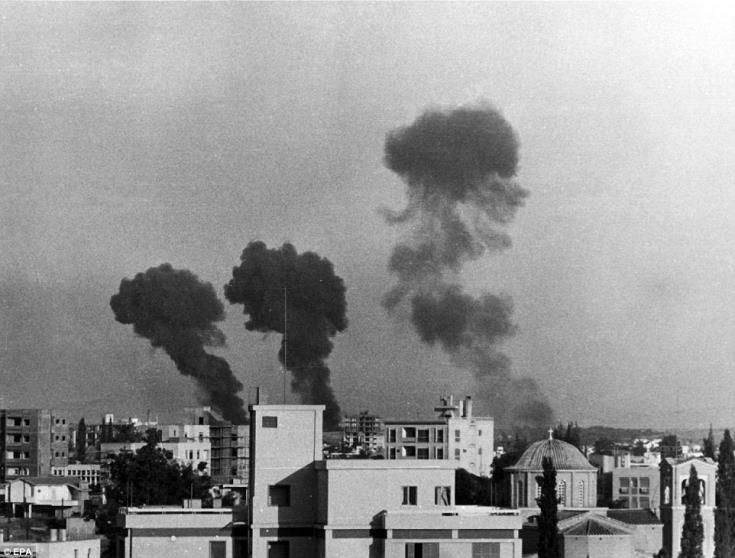Today marks 44 years since Turkish military forces advanced on August 14, 1974, occupying most of Mesaoria, Famagusta, Karpasia and most of the Morphou region to the west, violating any rule of international law, including of the Charter of the United Nations and despite the truce agreed.
A large part of the city of Famagusta, inhabited by Greek Cypriots, has remained closed and deserted ever since, with the occupying army not allowing the city's legal residents to return to their homes and property, despite relevant UN resolutions and decisions.
Turkey took the opportunity to impose its bipartisan plans against Cyprus, following the July 15, 1974 coup against President-elect Makarios. On July 20, 1974, claiming to be acting in accordance with Article 4 of the Guarantee Treaty, the Turkish Armed Forces launched a full-scale offensive against Cyprus, occupying 36% of the territory of the Republic and expelling the Greek Cypriots by force of arms. from their homes and properties. More than 36% of the territory of the Republic of Cyprus, which represents 70% of the economic potential, came under the occupation of the Turkish army, while a third of the Greek Cypriots became refugees in their own homeland.
The United Nations has passed several resolutions of the General Assembly and the Security Council demanding respect for the independence, unity and territorial integrity of Cyprus, the return of refugees to their homes and the withdrawal of foreign troops from the island, but all these resolutions have ignored by Turkey.
The situation in the enclosed city of Famagusta, Varosia, is vividly described in the report of the European Parliament's Committee on Reports for Famagusta, published in 2008 following an exploratory mission in Cyprus in November 2007: "From the fence that prevents pedestrians from having Access to Varosi, beach hotels, apartments and restaurants are nothing more than shabby concrete frames - huge urban tombstones that stand firmly against the passage of time mind. Nature also owns the Barosia. Trees and shrubs have sprouted through the fractures of damaged road arteries, where the ground has sunk and the underground sewer system is full. Cats and rodents roam the alleys. Churches have suffered the same fate as other buildings: they have been desecrated and left to be silent witnesses of the once-dominant Christian community. Schools and children's parks are also abandoned. "
The Greek Cypriot side has repeatedly called for respect for the resolutions and the return of Famagusta to its legal residents over the years, and has made proposals to achieve this goal, but all efforts have met with denial from the Turkish side.
The President of the Republic, Nikos Anastasiadis, has stated that he conveyed to the envoy of the UN Secretary General, Jane Hall Luth, during her recent visit to Cyprus, his determination and genuine will to engage again in a dialogue for a solution to the Cyprus problem. on the basis of the parameters of the UN Secretary General, on the basis of international law and on the basis of the European acquis. He expressed his readiness to start where we left off (in Crans Montana), as long as there is acceptance of all six points concerning the parameters of the Guterres framework.
Famagusta.News / KYPE
